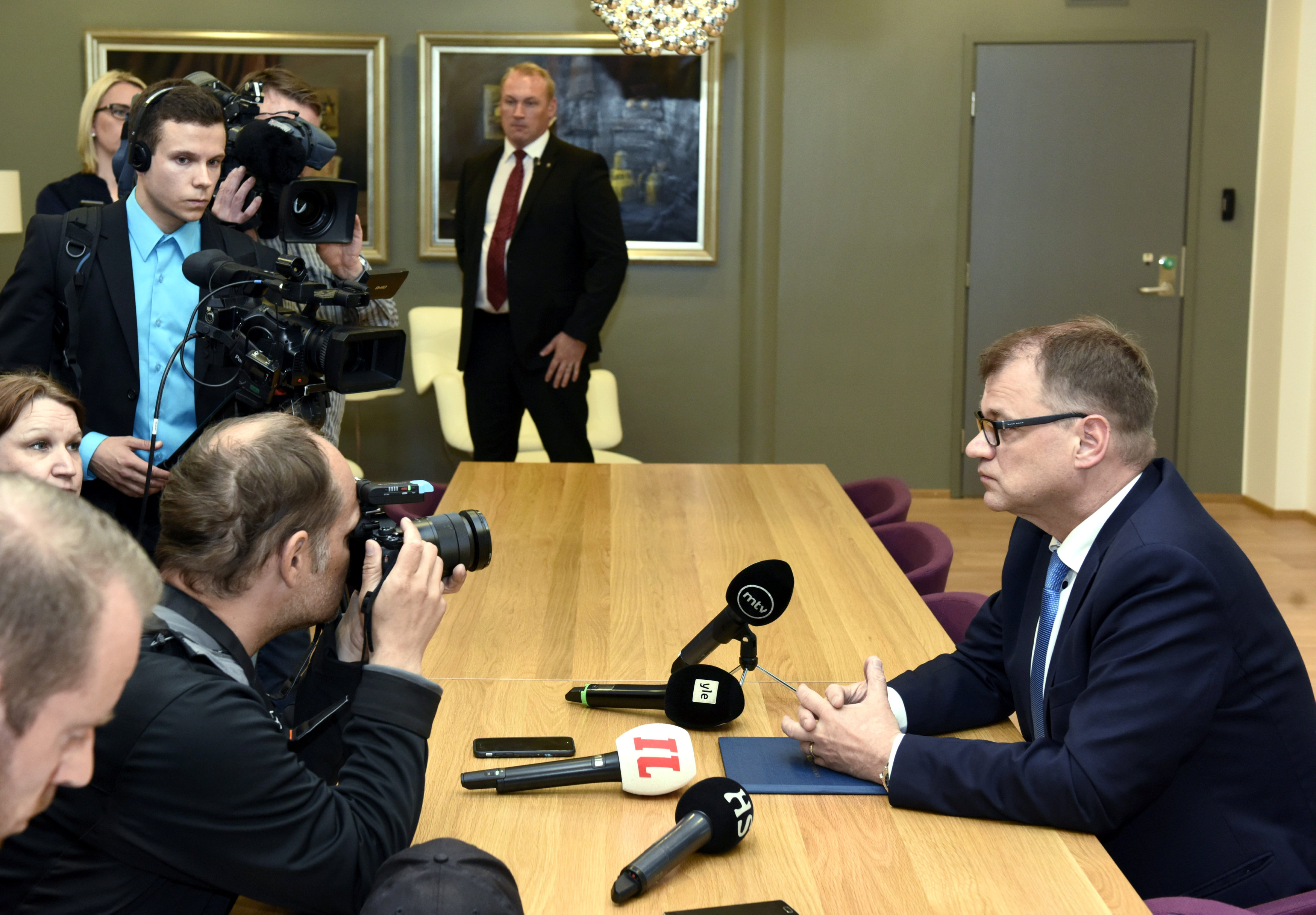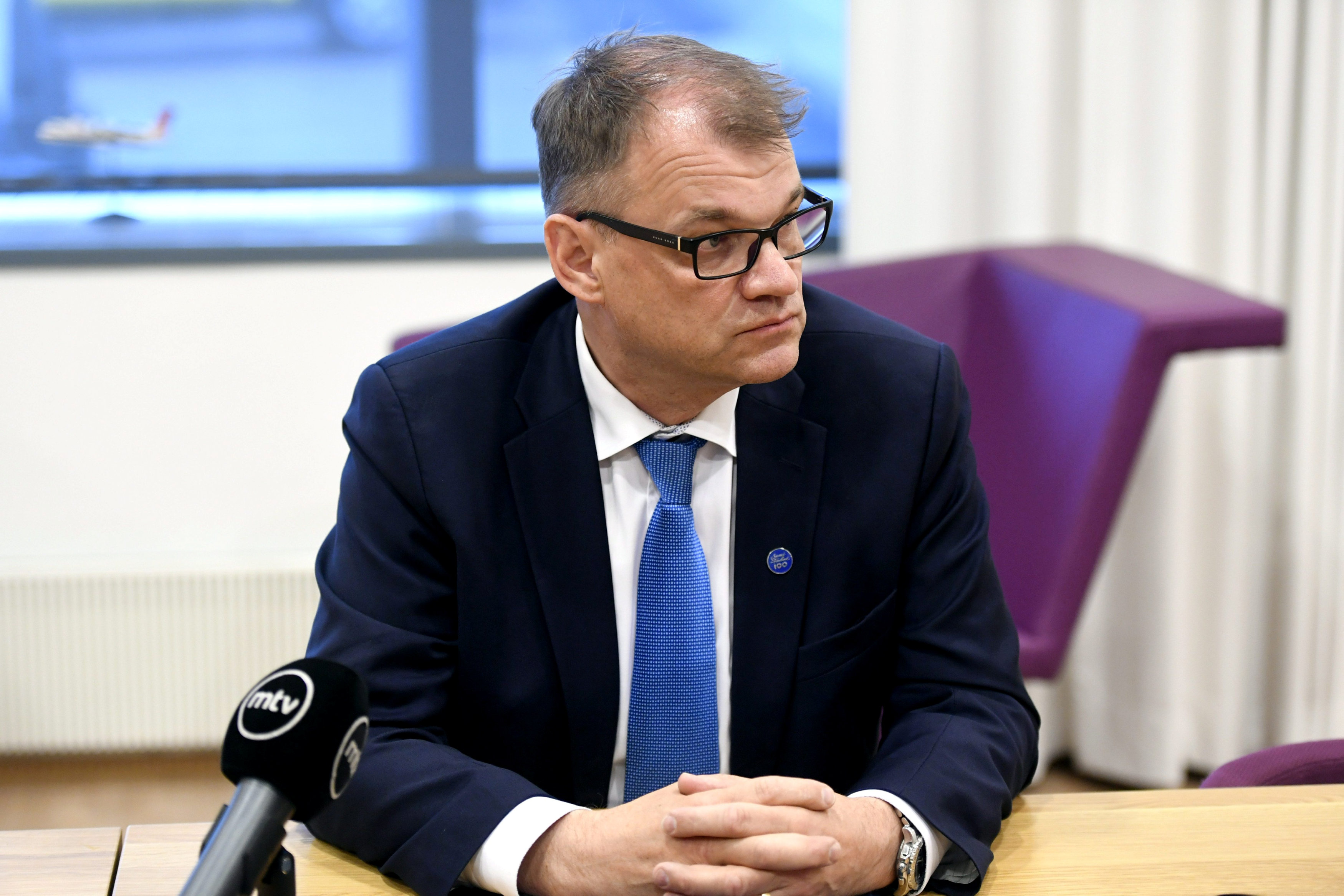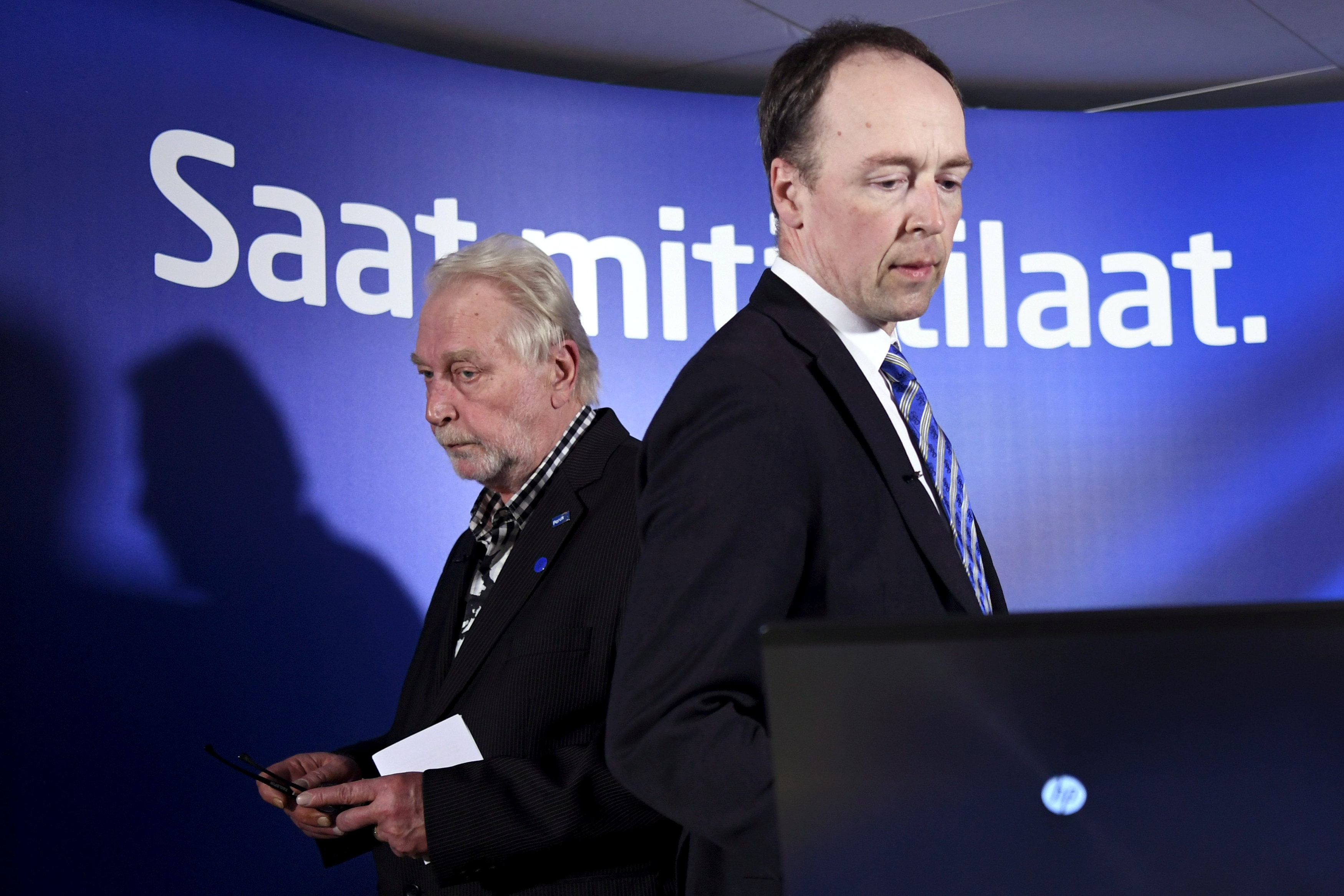Finland dodges government collapse after nationalists split

HELSINKI — Finland’s government averted collapse on Tuesday when the nationalist Finns Party split into two groups, leaving newly-elected hardline anti-immigrant leaders in the cold.
Twenty parliamentarians, including former Finns Party leader Timo Soini and all other current Finns ministers, formed a new group called New Alternative.
Prime Minister Juha Sipila, who had said he would break up his three-party coalition over the new Finns leaders, said he was ready to continue with the new group.
[Finnish coalition partners discuss whether to break up government]
“This is a very pleasing solution. We’ll continue with the current ministers, and with the current government program… The situation will be closed in just one day,” Sipila told reporters.
Sipila was on his way to hand over his resignation to President Sauli Niinisto when the split was announced, making a U-turn rush back.

The split between hardliners and more moderate members of the nationalists was the latest in a series of blows to Europe’s anti-establishment parties.
On Sunday, France’s National Front and Italy’s 5-Star Movement failed in attempts to win legislative and civic elections, respectively. Last week, Britain’s UK Independence Party saw its vote share collapse and won no seats in the British parliament.
The crisis for Finland’s government began on Saturday when the Finns Party, previously the second-biggest parliamentary group, chose Jussi Halla-aho as its new leader and replaced three deputy leaders with anti-immigrant hardliners in a shift to the radical right.
They will now be left out of government with 17 MPs, including two who have said they will quit.

“This decision will likely ruin our political careers…but we are determined to do this…for the right reasons. Today we are not politicians, but we are doing this for the fatherland’s sake,” said Simon Elo, chairman of the New Alternative group.
With New Alternative, the coalition – including Sipila’s Center Party and pro-EU National Coalition Party (NCP) – would have 106 of the parliament’s 200 seats.
Analysts had said a change in the coalition set-up could have derailed planned healthcare and local government reforms – central to Sipila’s plan to balance public finances.
Finland is recovering from a decade of stagnation. The government, now halfway through its four-year tenure, has sought to improve growth and curb public debt growth by cutting spending and reforming labor laws.
The central bank slightly increased its economic growth projections on Tuesday, but sees the pace declining from this year to 2019.
Turning Finns
Finland’s Finns Party is transforming for the second time: It was founded in 1995 after the demise of agrarian populist party SMP, rising from obscurity with an anti-EU platform during the euro zone debt crisis, and expanding into the second-biggest parliamentary party in 2015 election.
But after joining the government, its support dropped due to compromises in the coalition, increasing calls from the party grass root for tougher policy line.
The newly-elected party leader Halla-aho had said he wants Finland to leave the European Union. In 2012 he was fined by Finland’s Supreme Court in 2012 for comments on a blog that linked Islam to paedophilia and Somalis to theft.
Speaking to reporters at the party office on his third day as party chairman, Halla-aho said he was disappointed by the split.
“It is hard to believe that this sort of operation and betrayal of voters would happen… I could’ve not expected such a broad movement,” he said.